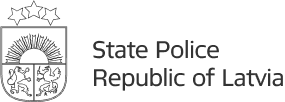Duties and rights of police officers
The Law on the Police states that: “The main duty of the police is to protect the lives, health, rights and freedoms, property, public and national interests of persons from criminal offences and other illegal threats. Police activities are organised on the basis of legality, humanity, human rights, social justice, openness, uniformity and on the basis of citizens' assistance."
The legal basis for the action of a police officer is the Law on the Police and other regulatory enactments of the LR. . As well as the duty of each police officer to comply with the requirement of the “National Police Code of Ethics” s. It should be borne in mind, however, that the regulatory enactments also specify the obligations and rights of the population to be respected in order not to prevent a police officer from performing the tasks assigned to it.
Mutual cooperation between the police and the public, as well as the trust of the population in each police officer, is essential. Unfortunately, there are conflict situations in which one of the parties has failed to comply with their duties, and the Office of the Internal Control of the State Police has a duty to assess these conflict situations, as well as to strengthen the discipline and legality of the service in the State Police departments.
If you are suspected of a violation of the law by a police officer as an official, we shall invite you to apply with an application or a statement to the Office of Internal Control of the State Police. In addition, we call on you to familiarize yourself with the duties and rights of a police officer, as well as with what people have to do when dealing with police officers.
DUTIES OF THE POLICE OFFICER
- To know the laws and regulations in force;
- Whenever the police have to limit the rights and freedoms of persons, the police officer shall provide them with an explanation justifying each particular restriction. . In such cases, at the request of the persons, the police officer must give his or her surname, position and place of service, as well as present a service certificate;
- Explain, in the event of a violation, what law and what acts have been infringed, properly classify infringements and draw up protocols;
- To be demanding but polite and correct in dealing with the population;
- The correct use of both vehicle movement meters and other special technical means in accordance with instructions and guidelines;
- Prevent vehicle and pedestrian movements, but, where this is not possible, identify or limit dangerous areas and alert road users to them;
- To assist drivers in choosing the correct movement route;
- Helping to remove damaged vehicles from the road;
- Helping disabled people, elderly people and children to cross the street, road, carriageway;
- Providing medical and other emergency assistance to persons who have suffered as a result of the infringements, in cases of accident or in a state of helplessness, even if they have lost their ability to move independently or may cause harm to the surroundings or to themselves;
- In the event of a written application, the detention and delivery to the police authority of persons whose dwellings are in a state of intoxication of alcoholic beverages, narcotics or other substances and may cause harm to themselves or to bystanders. . and in cases where bystanders are afraid to stay with them;
- Assisting minors who have remained without the supervision of parents or other adults;
- Detention of minors who have arbitrarily abandoned their place of residence or children's institutions;
- Detention of persons with unmistakable mental disorders who pose obvious dangers to themselves or to bystanders through their activities;
- To bring to the medical treatment institution persons who have attempted to commit suicide;
- Temporarily restrict or suspend the movement of transport or pedestrians on the streets and on the roads, as well as the entry and exit of persons in separate places or objects, where the interests of public safety or investigation so require;
- Enable the exercise of the right of the detained or arrested persons to invite a lawyer if they so wish;
- To notify the whereabouts of the detained or arrested person to the family, workplace or educational institution administration if the person so requests.
RIGHTS OF THE POLICE OFFICER
- To inspect documents for persons suspected of having committed offences;
- To bring to the police authority and administratively suspend offenders for up to 4 hours in order to ascertain their personality, to inspect or remove their belongings or documents, to draw up a report if it has not been possible at the place of the offence;
- Enter an apartment without a permit (if necessary also using physical force) at any time of the day in cases where the offender is to be detained at the crime scene or human life is endangered;
- To draw up and prepare a firearm if the policeman considers it necessary to apply it;
- Use a firearm if the detained person attempts to approach the policeman at the distance indicated, deliberately makes unexpected movements or takes other dangerous acts which can be understood as attempting violence;
- Use of physical force, special fighting techniques, handcuffs, knives, tethering agents, tearbreaking agents, batons, as well as service dogs to apprehend and deliver to the police authority offenders who are not abusing legitimate police requirements (these techniques shall not be used against women, minors and persons with visible signs of disability, except in cases when they show armed resistance, there is a group attack, a threat to human life or health);
- Suspend the vehicle and perform its inspection if there are grounds for believing that the driver has infringed the requirements of the Road Traffic Regulations or the Law;
- Suspend and inspect vehicles in order to arrest persons who have committed a crime or escaped arrest;
- To be suspended from a driving person who does not have documents regarding the use of the vehicle in question or the driving rights of that category;
- Suspend from driving and send to the test persons for whom there are sufficient grounds for believing that they are under the influence of alcoholic beverages, narcotics or other intoxicating substances (Section 258 of the “Latvian Code of Administrative Violations”);
- With the consent of the driver to use vehicles belonging to undertakings, authorities, bodies or persons for the purpose of leaving the place of the offence, pursuing the offenders, delivering detainees to a police authority, to a doctor who urgently needs medical treatment;
- Use the local means of communication between authorities, businesses and organisations for the purposes of the service free of charge.


